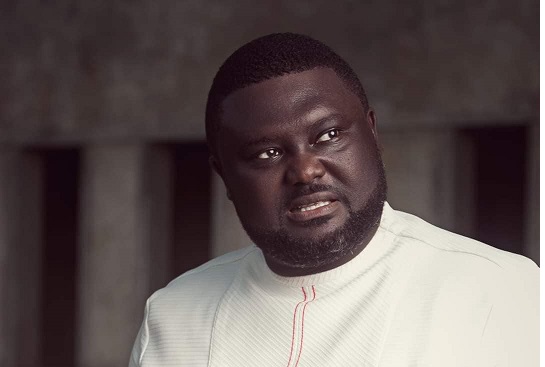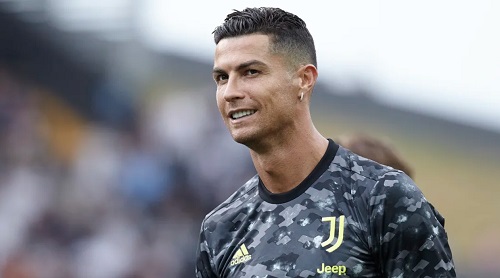Nomadland scooped the top prizes at this year’s Oscars, which was “a snooze”. Nicholas Barber reviews the highs and lows of the 93rd Academy Awards.J
Just as some films are so bad they’re good, the ending of the 93rd Academy Awards ceremony was so anti-climactic that it almost counted as climactic. The traditional order of the prize-giving had been shuffled, so that the best picture award, the one everyone had been waiting for, had already gone to Nomadland. That left the best actress and best actor. Frances McDormand – the star of Nomadland – accepted her third Oscar in the former category, and hurried through the shortest speech of the night. Joaquin Phoenix then stepped onto the stage to present the best actor prize. Never exactly Mr. Personality when he isn’t in character, Phoenix muttered that he was supposed to talk about the transformative magic of the acting process, but he couldn’t think of anything to say. Without introducing any clips or describing any of the individual performances, he went on to name the five nominees.
Presumably, the producers had thought that the late Chadwick Boseman would win for Ma Rainey’s Black Bottom, thus rounding off the evening on a rousing emotional note. But the Oscar went to Anthony Hopkins for The Father, and he wasn’t at the ceremony, so cinema’s big night closed with a black-and-white headshot of the actor, and Phoenix muttering that the Academy would accept the award on his behalf. And that was it. The show was over. It was unbelievable. But it was a fitting conclusion to an Oscar ceremony that had been more low-key yet more strange than any other in living memory.
In order to keep the participants safe from coronavirus, the organisers hadn’t packed thousands of guests into the Dolby Theatre. Instead, just 200 people were in a hall in Los Angeles’ Union Station, sitting at tables with lamps on them, in front of a low semi-circular stage. They were at a swanky nightclub, essentially, except without the food, drink or floor show that might have completed the effect. Even allowing for the necessary health and safety precautions, the festivities were amazingly quiet and restrained. As produced by Steven Soderbergh, they had no song and dance routines, no stunts or pranks, and almost no jokes. The backdrop was a simple dark blue curtain, and the orchestra had been replaced by a DJ, Questlove, who kept the funky intros and outros laidback and unobtrusive. It was less like a typical Oscar ceremony than an Oscar-themed office party, which half the staff had skipped because their boss wouldn’t allow any alcohol.
Thomas Vinterberg’s Another Round won best international feature (Credit: Reuters)
Rather than kicking things off with a glittery production number and/or an irreverent monologue, the evening began with Regina King striding onto the stage and mentioning the pandemic and the Derek Chauvin conviction. Without a pause, she followed those first few grave sentences by reciting some factoids about the nominees in the screenwriting categories and giving prizes to Florian Zeller and Christopher Hampton (best adapted screenplay for The Father), and to Emerald Fennell (best original screenplay for Promising Young Woman). The first two awards were done and dusted in the time it normally takes for Tina Fey and Amy Poehler to swap wisecracks while Tom Hanks smiles indulgently from the front row.
The evening was a snooze
This was the format for the rest of the evening. Each presenter would handle two awards apiece, with none of the excruciating faux-spontaneous banter we’re usually subjected to. The winners, either in the station or via satellite from elsewhere, could talk for as long as they wanted without being drowned out by blaring brass after 45 seconds. It made a refreshing change. Thomas Vinterberg, whose Another Round won best international feature, spoke movingly about his daughter, who was killed in a car accident just as filming started. Yuh-Jung Youn, who won best supporting actress for Minari, forgave us all for mispronouncing her name, and sweetly theorized that she had won because she was luckier than her competitors. Daniel Kaluuya, who won best supporting actor for Judas and the Black Messiah, commented, for some reason, that if his parents hadn’t had sex, he wouldn’t have been born. And James Reed, co-director of My Octopus Teacher, which won best documentary feature, asked the eternal question: “If a man and an octopus can form a friendship, who knows what else can happen?”
But the positive decision to let the winners ramble on was balanced by the far more dubious decision to show hardly any clips from the nominated films. The weird absence that resulted was tough on the films that could have done with the publicity boost, and tough on viewers who wanted a taste of those films. It also added to the plain, parsimonious feel of a ceremony that had already been stripped of most of its time-honoured glamour. We’re talking about three-and-a-quarter hours of television here – and 15 minutes of inspiring or amusing speeches wasn’t enough to make it thrilling.
Yuh-jung Youn won best supporting actress for her role in Minari (Credit: Chris Pizzello/ Reuters)
Indeed, once the novelty of the new venue and the austere format had worn off, the evening was a snooze. Yes, there were historic wins: Chloé Zhao became the second-ever woman and the first-ever woman of colour to win the Oscar for best director; Hopkins became the oldest person to win an acting Oscar. But most of these had been widely predicted. Nomadland had been touted as the Oscars’ big winner ever since it premiered at the Venice Film Festival last September, so while its victory on the night was welcome, it didn’t set the pulse-racing in the way that the Parasite triumph did last year. And several other wins – such as that of Pixar’s Soul in the animated feature and score categories – were neither historic nor surprising. You could tell that even the producers were bored because the continuity announcer kept promising that Brad Pitt would be appearing soon as if we were supposed to be grateful for a glimpse of an A-lister. And the closest thing to raucous behavior came during a tedious music quiz when Andra Day let slip a swear word and Glenn Close twerked to Da Butt by EU. Again, this is the kind of mild-mannered naughtiness you might reminisce about the morning after an under-attended office party, but shouldn’t the Oscars have more pizzazz than that?
Of course, it was always going to be a less spectacular shindig than usual. Crowds had to be kept away, the customary glad-handing award-season lunches had to be scrapped, and, anyway, the studios are understandably holding back their most commercial films until cinemas reopen. But Soderbergh and his team could have taken the opportunity to remind us of how exciting cinema-going can be. Instead, their subdued and sober event made Hollywood seem like a nice little cottage industry which produced films for a small, select audience, and didn’t care about selling them to anyone else. The fairest thing to say is that Academy Awards are rarely very entertaining to watch, but at least this year they were not very entertaining in an unexpected way.
Source:BBC





